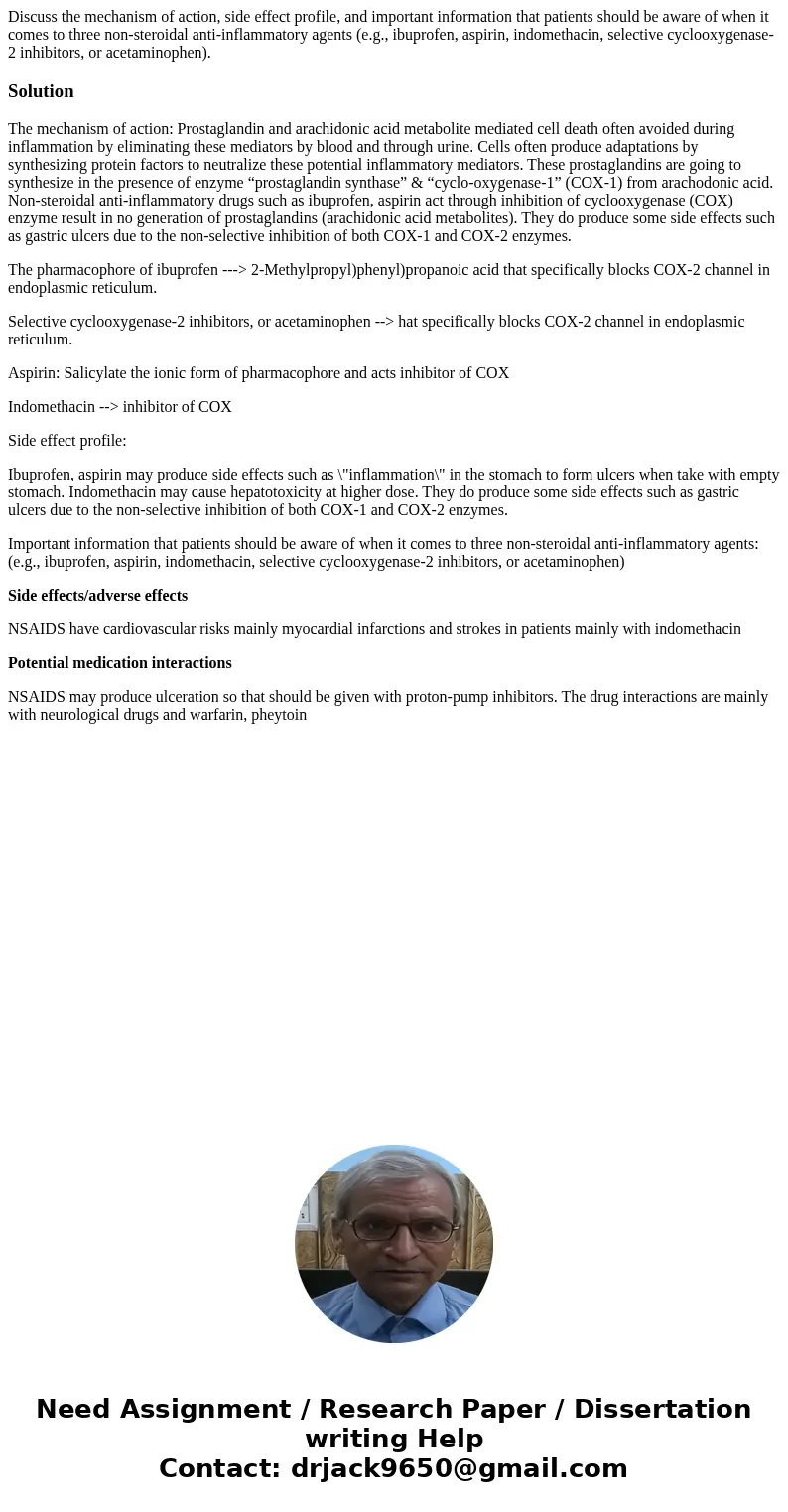Discuss the mechanism of action side effect profile and impo
Discuss the mechanism of action, side effect profile, and important information that patients should be aware of when it comes to three non-steroidal anti-inflammatory agents (e.g., ibuprofen, aspirin, indomethacin, selective cyclooxygenase-2 inhibitors, or acetaminophen).
Solution
The mechanism of action: Prostaglandin and arachidonic acid metabolite mediated cell death often avoided during inflammation by eliminating these mediators by blood and through urine. Cells often produce adaptations by synthesizing protein factors to neutralize these potential inflammatory mediators. These prostaglandins are going to synthesize in the presence of enzyme “prostaglandin synthase” & “cyclo-oxygenase-1” (COX-1) from arachodonic acid. Non-steroidal anti-inflammatory drugs such as ibuprofen, aspirin act through inhibition of cyclooxygenase (COX) enzyme result in no generation of prostaglandins (arachidonic acid metabolites). They do produce some side effects such as gastric ulcers due to the non-selective inhibition of both COX-1 and COX-2 enzymes.
The pharmacophore of ibuprofen ---> 2-Methylpropyl)phenyl)propanoic acid that specifically blocks COX-2 channel in endoplasmic reticulum.
Selective cyclooxygenase-2 inhibitors, or acetaminophen --> hat specifically blocks COX-2 channel in endoplasmic reticulum.
Aspirin: Salicylate the ionic form of pharmacophore and acts inhibitor of COX
Indomethacin --> inhibitor of COX
Side effect profile:
Ibuprofen, aspirin may produce side effects such as \"inflammation\" in the stomach to form ulcers when take with empty stomach. Indomethacin may cause hepatotoxicity at higher dose. They do produce some side effects such as gastric ulcers due to the non-selective inhibition of both COX-1 and COX-2 enzymes.
Important information that patients should be aware of when it comes to three non-steroidal anti-inflammatory agents: (e.g., ibuprofen, aspirin, indomethacin, selective cyclooxygenase-2 inhibitors, or acetaminophen)
Side effects/adverse effects
NSAIDS have cardiovascular risks mainly myocardial infarctions and strokes in patients mainly with indomethacin
Potential medication interactions
NSAIDS may produce ulceration so that should be given with proton-pump inhibitors. The drug interactions are mainly with neurological drugs and warfarin, pheytoin

 Homework Sourse
Homework Sourse